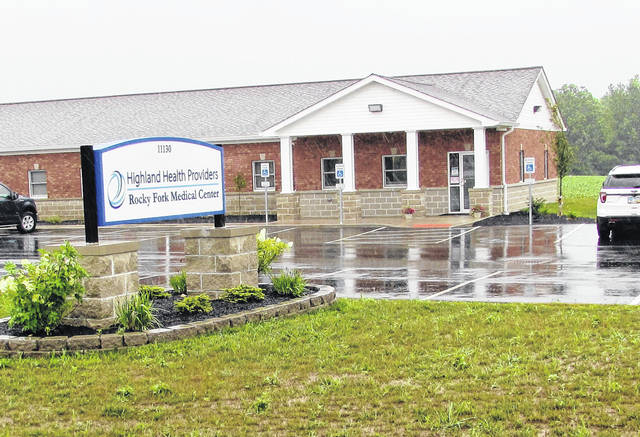
Rep. Brad Wenstrup is one of four co-chairs on a bipartisan task force formed last week by the congressional Ways and Means Committee to examine the growing problem of delivering health care to rural areas such as Highland County and other underserved areas throughout Appalachia.
“This is a big issue, and a very threatening issue to the health care systems in rural America,” he said. “And yet I see our hospitals, physicians and other practitioners doing their best to make sure their local people are taken care of.”
Rep. Jodey Arrington from Texas agreed with Wenstrup’s assessment that areas like southern Ohio are facing a serious crisis when it comes to rural access to quality health care, saying that in the last three years more than 90 rural hospitals have closed their doors, two in the last year alone in his west Texas district.
According to the website Becker’s Hospital Review, Doctors Hospital of Nelsonville in Athens County and Fremont’s Physicians Choice Hospital in Sandusky County in northern Ohio were the most recent rural Ohio hospitals to close their doors.
Closer to home, it was nearly five years ago that Southwest Regional Medical Center at Brown County General Hospital in Georgetown closed without warning.
Wenstrup commended the efforts of Highland District Hospital and Highland Health Providers for moving forward with addressing the health care needs of the Rocky Fork Lake region by building the Rocky Fork Medical Center, which opened in April.
Wenstrup visited the facility recently to ascertain what was working when it came to rural health care, and what needed improvement. He said that as a physician, he saw flaws in the system that in his words “is simply not fair.”
One of those is reimbursements for Medicare and Medicaid, which he said is based on cost of living, but he thinks should be based on the payer mix.
“In other words, if you’re a hospital and you have a mix of 80 percent private pay, you’re getting paid pretty well,” he said. “And that makes it easier for your facility to accept the lower reimbursement rates that come with Medicare and Medicaid.”
He said what is happening in rural areas such as Highland County is the cost of living is lower which brings down both Medicare and Medicaid’s reimbursement rates, which means the payer mix isn’t good.
“Let’s say you’re in Manhattan with an 80 percent private pay mix, they’re doing pretty well because the cost of living is higher,” Wenstrup said. “But then you get into the rural communities that have a lower payer mix to begin with, or non-payers if people can’t afford it, and then at the same time you get less in reimbursements from Medicare and Medicaid, so these physicians and hospitals are getting hit twice.”
Another underserved aspect of the health care puzzle is transportation, he said, with another being poverty in rural areas, which Highland County Health Commissioner Jared Warner recently told The Times-Gazette is at 17 percent in Highland County with a childhood poverty rate of 30 percent.
Still another is working through the bureaucracy of the government programs, with a person having to visit multiple offices for food, housing and health care assistance. Another of the biggest concerns Wenstrp said he hears from constituents has to do with losing necessary benefits when they’re deemed to be “making too much money.”
“People will tell me that they were starting to do better, but then were told that since they were making more money that their kids would lose their health care through Medicaid,” he said. “We’ve got to change that — we shouldn’t be punishing people who are starting to succeed.”
Wenstrup said he is an advocate of the government getting out of the way when it comes to health care. He said he saw a perfect illustration of what can go wrong when he attended a bipartisan event at Harvard University before being sworn into Congress.
He said the Affordable Care Act hadn’t come into being yet, but that one of the “experts” said to those in attendance that once it became law “Marcus Welby is done.”
“Marcus Welby was a country doctor on TV,” he said. “And I raised my hand and asked him when was the last time he left Boston?”
He said he told them that rural communities need and love people like Marcus Welby, and that if the ACA, otherwise known as Obamacare, became law, “it would hurt a lot of people.”
Wenstrup said the newly formed Rural and Underserved Communities Health Task Force will convene its first meeting Thursday in the nation’s capitol.
Reach Tim Colliver at 937-402-2571.


